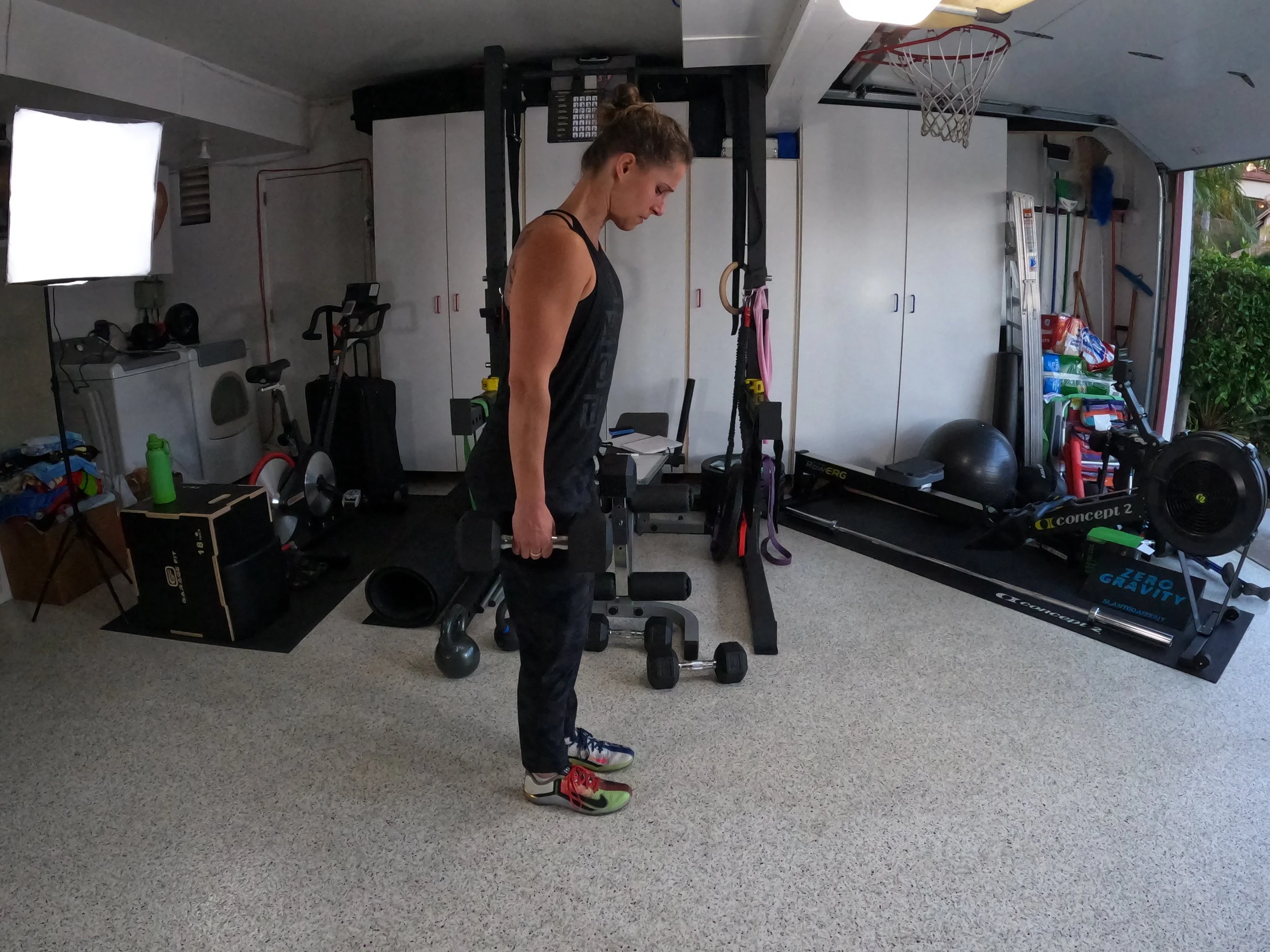
Individual Sessions
Are you ready to MOVE out of chronic pain?

Traditional ortho PT can be of great help, but typically lack the sensory strategies to overcome inhibition and truly build new movement patterns. Pain Programs can get people moving more and coping better, but often lack the individualization in the patients own setting and daily challenges to most effectively integrate changes. To get different results, you need a different approach. Resilience and capacity can be earned through truly individualized movement and lifestyle medicine, and are arguably the most critical variables that impact long-term outcomes with chronic conditions.
No matter where you're at, we're working on and prioritizing the pieces of pain that are affecting you most. Lifestyle factors amplify pain and may need to be optimized to create more capacity for movement. Inhibition and instability contributes to pain output and need to be improved so you are not fighting increased tone, spasming, and weakness as a result of living in pain. While things that help us feel better and downregulate the nervous system have tremendous value, the challenge complex patients often have, is the changes don't last and you end up in the same movement pattern that creates pain.
This is because your brain still defaults back to using the same old information if you don't improve the sensory input it's basing movement decisions on. To break through platoes, you need to teach your brain there IS another option. Once your brain has ways to feels safer and more stable using muscles it's learned to work around, neuroplasticity is built and progress can happen. But releases, corrective exercise, and pain science or PRT alone won't get you there. To change the motor output, you have to change the motor input. How? Through a neuro lens and individualized integration.
“Improving the underlying cracks in the foundation is crucial if you want to build a sturdy house that lasts.”
— Justine Feitelson
1:1 Neuro Based Sessions
Stability is the focus for patients who want to work on underlying compensations and have the lifestyle factors more under control, but need better guidance with movement to decrease weakness and neuromuscular inhibition from living in pain.
This is a completely individualized approach to movement, tailored to your brain and body. This is NOT like a traditional pain program or physical therapy. We work one-on-one on Zoom together, integrating unique sensory strategies that reflect your specific diagnosis and compensation patterns so we improve your biggest limiters from a movement perspective. We then progress and integrate those strategies at the frequency appropriate given your needs and goals. You’ll learn how to better address the underlying inhibition and brain mapping issues that affect stability, walking (gait), and positional intolerance (more pain with sitting or standing) so you can eventually progress exercise with less pain and flares.
1:1 movement sessions are for patients who have:
Chronic back, neck, or joint/limb pain that hasn’t responded enough to PT
Chronic conditions like hEDS or hypermobility spectrum disorders or complex pathologies affecting mobility and creating problem areas
Have highly sensitized areas or areas areas of very low sensation you don’t feel or have good motor control over that affect movement
Neurological conditions like brain injury/stroke, MS, Parkinsons causing weakness or hemiparesis
Implants like spinal cord stimulators that affect muscle recruitment and create inhibition
You may have goals like:
Be able to walk further or stand longer (gait)
Less pain from sitting and standing
Becoming more active/independent in daily life
Desensitize painful areas of neuropathy or widespread pain
Break through the ceiling you’ve hit after physical therapy helped, but not enough
Restore function and mobility after amputation
Flare less from exercise and integrate a sustainable movement practice
Individual sessions include:
55 min Zoom call(s)
Recording with lifetime access
Integration of strategies into your daily life outside of calls
You may go session by session, at whatever frequency we talk about being effective for your specific situation and goals e.g. every 2 weeks, etc.
Individual Sessions are $175/each. Still have questions or concerns? Schedule a Discovery Call to chat about your situation and how we’d approach it based upon your specific needs, challenges, and goals.
To address sensitization and the lifestyle pieces of conservative pain management that amplify pain from underlying conditions making it significantly more challenging to integrate movement, check out the BASE CAMP group program. If you are more advanced and ready to build strength, check out individualized fitness programming.
-
4 month group program for complex pain patients dealing with central sensitization/nervous system dysfunction to decrease pain before integrating more movement.
-
Individualized exercise programming based upon a movement assessment that sustainably progresses strength and aerobic fitness for chronic pain patients.
For more free resources and education, follow me on social media, read the RWC blog, join the community newsletter, and check out my podcast with Dr. Dan Bates, It’s Not in Your Head.

Frequently Asked Questions
-
In the MARSMethod Mentorship we evaluate the previous weeks/months goals, troubleshoot stressors/challenges from previous period, go over exercise programming, cover resources/handouts, learn new movement techniques, and discussing medical/pain aspects of care. This is a real relationship, and I take a whole person centered approach to my care.
In the Individual Design Program consults we go over exercise program design related issues.
In Private Movement Sessions we focus on brain-based neuro movement strategies
-
We will typically have a scheduled recurring time to meet that works or you. That being said, this is life with chronic pain and treatments and if there wasn’t some flexibility we wouldn’t be successful. That’s why you have 16 weeks to complete the 12 session in the Mentorship.
In other programs, please cancel at least 24 hours in advance.
-
To start, just some basic, accessible items so we can guarantee proper exercise selection, appropriately progress movement, and implement release techniques and sensory strategies. I'll provide a list of recommendations for mobility tools and bands, and based upon your unique situation and goals, discuss anything additional you may need as we progress. There is no need for a gym membership nor any expensive equipment to start.
-
Yep! You can pay in full to receive a discount, or in monThly installments for the MARSMethod Mentorship or Individual Design Program.
Private Movement Sessions can be paid for by appointment as you go, or in regular chunks if preferred.

